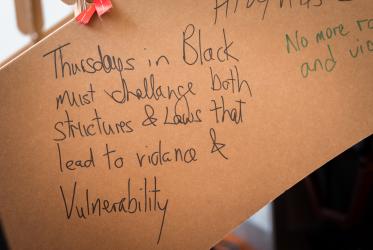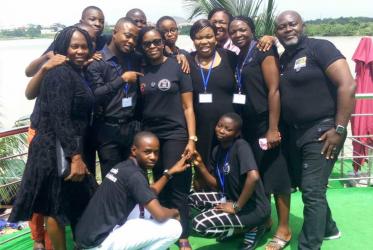Displaying 1 - 9 of 9
South Africans draw hope despite recurring challenges
16 December 2019
Youth leaders: “We will stop at nothing” to end HIV and violence
17 October 2019
When you strike the women, you strike a rock
18 September 2019
Paving the way for ecumenical studies, learning English in Bossey
24 September 2018
Nigerian breaks down stereotypes on Muslims
13 July 2017





